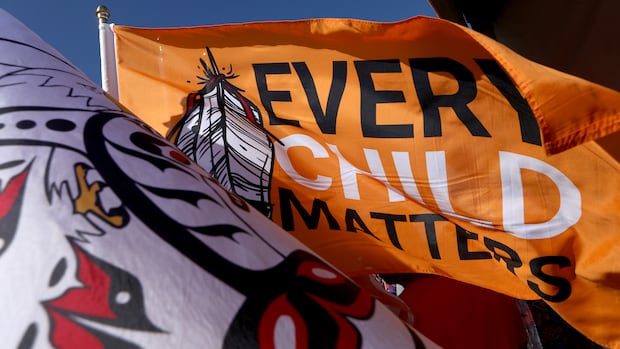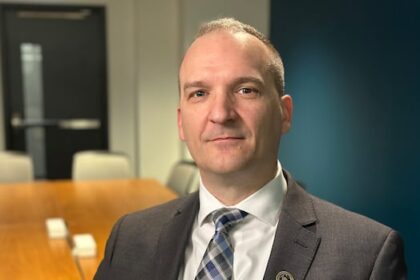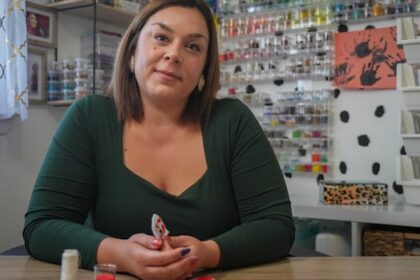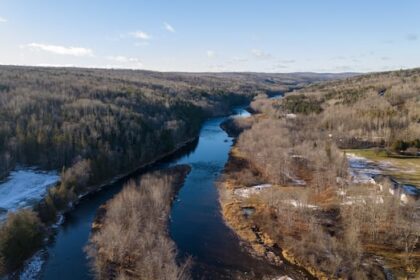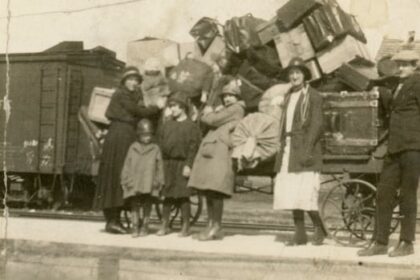IndigenousThe Canadian Human Rights Tribunal has begun hearing a potentially precedent-setting legal battle between Canada and the Mississaugas of the Credit First Nation about the alleged systemic underfunding of on-reserve schooling in Ontario. Canadian Human Rights Tribunal hears complaint over allegedly discriminatory funding model in OntarioBrett Forester · CBC News · Posted: Oct 28, 2025 1:35 PM EDT | Last Updated: 2 hours agoListen to this articleEstimated 4 minutesMississaugas of the Credit First Nation says residential schools were replaced with a grossly underfunded education system that continues to harm children. (The Canadian Press/Chad Hipolito)The federal government is fighting an Anishinaabe First Nation in what could be a precedent-setting legal battle about the alleged systemic underfunding of on-reserve schools in Ontario.Mississaugas of the Credit First Nation presented its opening statement Monday to the Canadian Human Rights Tribunal, alleging Canada’s education funding model is inadequate, racially discriminatory and perpetuates the colonial harms inflicted on children at residential schools.Though launched by one community, the case is about all First Nations kids across Ontario, said Chief Claire Sault at a ceremony before the hearing began.“For far too long First Nations students have faced barriers that no child should have to face,” she said in a speech.The human rights tribunal is a court-like body that judges discrimination complaints. The first day of the hearing was held in person in Mississaugas of the Credit, about 90 kilometres south of Toronto.The First Nation says in legal papers that residential schools may have closed but the damage is ongoing.“They were replaced with a grossly underfunded education system subject to arbitrary budget caps,” say the documents.”The damage caused by this period also continues to this day.”Mississaugas of the Credit First Nation Chief Claire Sault pictured on July 21, 2025. (Evan Mitsui/CBC)At issue is Canada’s “interim funding model” introduced as a temporary measure in 2019-20, which the First Nation says doesn’t provide funding comparable to the provincial system and doesn’t account for First Nations kids’ greater needs, nor the higher cost of operating schools on reserves.“As an inevitable consequence, children are not receiving equitable services, including services that account for historic disadvantages and the need for culturally-based services,” the First Nation alleges in its tribunal papers.“Children are suffering now as a consequence and in many cases the impacts will last a lifetime.”Canada isn’t giving an opening statement until later in the proceeding. In a responding legal filing, however, Canada says it acknowledges the lasting impacts of colonialism before arguing Mississaugas of the Credit misunderstands and mischaracterizes the funding model.”Significantly, the [First Nation] does not identify, in specific or concrete terms, exactly how the interim formula fails to meet the needs of its students,” the Justice Department says.”Rather, its complaint is framed in general terms, and without a concrete factual basis.”The community’s Lloyd S. King Elementary School opened in 1998. (Mississaugas of the Credit First Nation)The case draws on key precedent set in 2016 when the tribunal confirmed Canada was racially discriminating against First Nations kids for decades by chronically underfunding child and family services on reserves and in the Yukon.That complaint, filed in 2007 by the Assembly of First Nations and the First Nations Child and Family Caring Society, culminated in a historic $23.4-billion class-action settlement to compensate victims, plus a proposed $47.8-billion offer to reform the system that First Nations leaders voted down in October 2024.The Harper government initially fought to have the complaint rejected on procedural grounds but lost. After taking over, the Trudeau government fought in court against a tribunal order requiring Canada to compensate victims but also lost.In a statement, Indigenous Services Canada spokesperson Maryéva Métellus said Canada respects the community’s decision to seek review by the tribunal and will participate respectfully.The Canadian Human Rights Commission is supporting the First Nation’s case, arguing that Indigenous kids have a human right to education protected by international and Canadian law.The hearing continues virtually and is expected to last 15 days.ABOUT THE AUTHORBrett Forester is a reporter with CBC Indigenous in Ottawa. He is a member of the Chippewas of Kettle and Stony Point First Nation in southern Ontario who previously worked as a journalist with the Aboriginal Peoples Television Network.
Wednesday, 4 Feb 2026
Canada – The Illusion
Search
Have an existing account?
Sign In
© 2022 Foxiz News Network. Ruby Design Company. All Rights Reserved.
You May also Like
- More News:
- history
- Standing Bear Network
- John Gonzalez
- ᐊᔭᐦᑊ ayahp — It happened
- Creation
- Beneath the Water
- Olympic gold medal
- Jim Thorpe
- type O blood
- the bringer of life
- Raven
- Wás’agi
- NoiseCat
- 'Sugarcane'
- The rivers still sing
- ᑲᓂᐸᐏᐟ ᒪᐢᑿ
- ᐅᑳᐤ okâw — We remember
- ᐊᓂᓈᐯᐃᐧᐣ aninâpêwin — Truth
- This is what it means to be human.
- Nokoma


